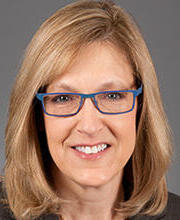Elizabeth Carson Engle

The human brain is a highly organized structure containing myriad axon tracts that follow precise pathways and make predictable connections, yet only a handful of human disorders clearly resulting from errors in axon growth and guidance have been identified. Our lab has found that human congenital disorders of eye and face movement can result from disordered axon targeting of cranial musculature, leading to the definition of the congenital cranial dysinnervation disorders (CCDDs). Cranial nerve development is a beautifully precise and tractable model system in which to observe axon trajectories, and the disease genes we have identified have led to our interest in the role of the cytoskeleton and the interplay between microtubules and their associated proteins in these processes.
Current projects in the lab include (1) the use of genetic technologies to identify genes mutated in the CCDDs and other peripheral and central nervous system developmental disorders, (2) functional studies of these mutated genes and their normal and abnormal proteins using mouse and zebrafish modeling and various in vitro approaches, and (3) studies to better define normal cranial nuclear and nerve development.
Contact Information
Center for Life Sciences Building,
3 Blackfan Circle, CLS 14075
Boston, MA 02115
